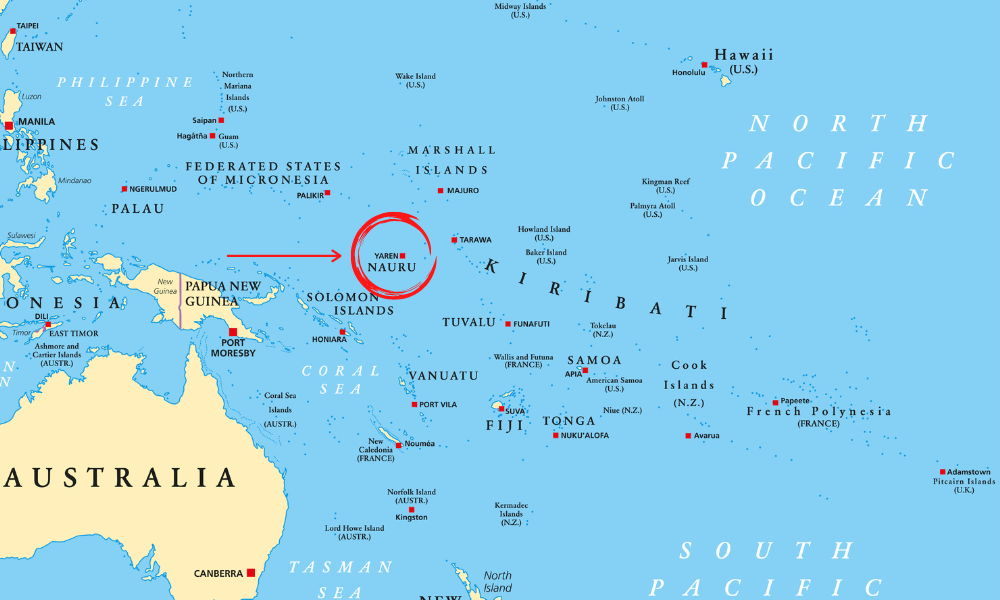Nauru has announced its decision to sever diplomatic ties with Taiwan and establish formal relations with China. This development comes on the heels of the recent presidential election in Taiwan, where William Lai Ching-te from the ruling pro-sovereignty Democratic Progressive Party emerged victorious.
Nauru’s decision marks a significant shift in alliances, making it Taipei’s first diplomatic ally to switch allegiance to Beijing after the recent elections. China has long claimed Taiwan as part of its territory, a position staunchly contested by Taiwan.
Taiwan’s Deputy Foreign Minister Tien Chung-kwang characterised the development as an “ambush-like” move and a “blatant attack on democracy.”
 The Nauru government justified its decision by stating that it is in the “best interests” of the country and its people to seek the full resumption of diplomatic relations with China. The official statement explicitly declared that Nauru will no longer recognise the Republic of China (Taiwan) as a separate entity but instead as an “inalienable part of China’s territory.”
The Nauru government justified its decision by stating that it is in the “best interests” of the country and its people to seek the full resumption of diplomatic relations with China. The official statement explicitly declared that Nauru will no longer recognise the Republic of China (Taiwan) as a separate entity but instead as an “inalienable part of China’s territory.”
Taiwan’s presidential office responded by accusing China of employing “false promises” to woo friendly nations, emphasizing that Beijing had used financial incentives to lure Nauru away. China, in turn, welcomed Nauru’s decision, reinforcing its longstanding claim over Taiwan and dismissing any notion of state-to-state ties with the island.
Analysts point to China’s strategic timing, choosing to make the announcement shortly after Taiwan’s presidential election.
This move leaves Taiwan with only 12 remaining diplomatic allies, including countries such as Guatemala, Paraguay, Eswatini, besides just two Pacific Island nations – Palau, and the Marshall Islands. In recent years, Kiribati and Solomon Islands also switched allegiance similarly.
The incident underscores the broader trend in the Pacific region, where several nations have shifted their allegiance from Taiwan to China in recent years. China’s economic influence and promises of financial support have played a crucial role in convincing smaller nations to align with Beijing.



